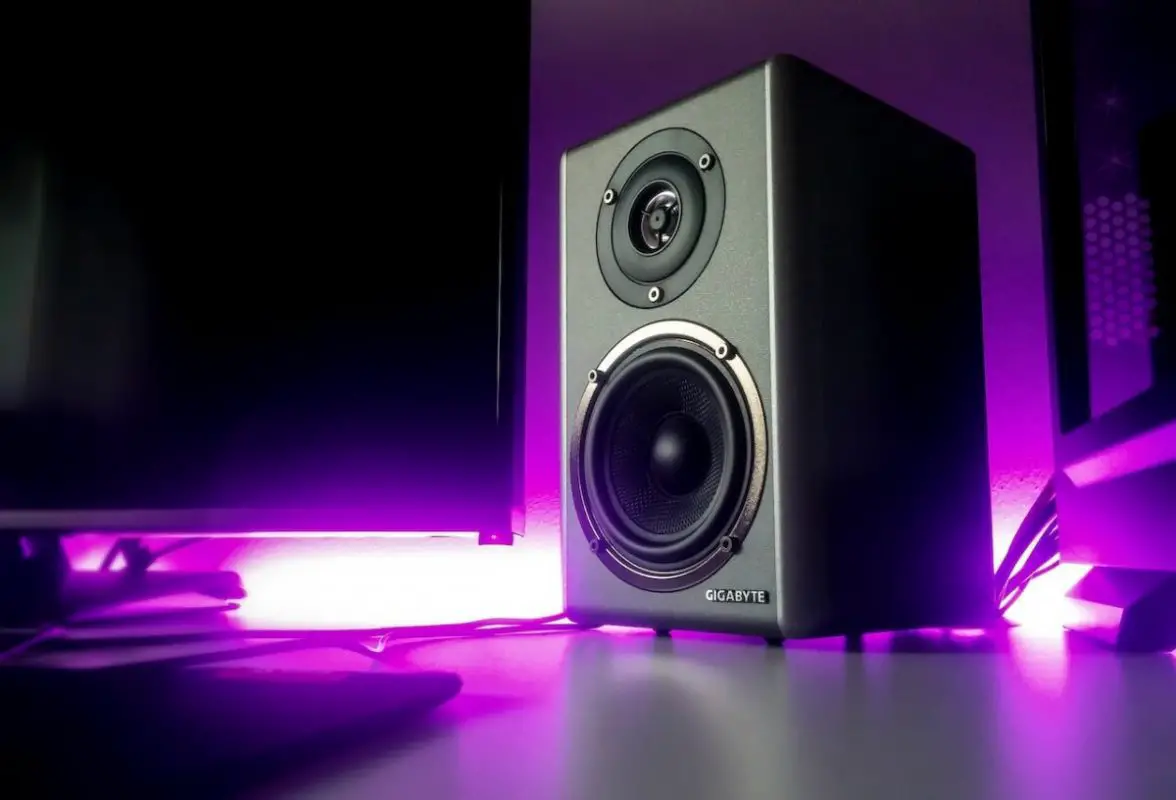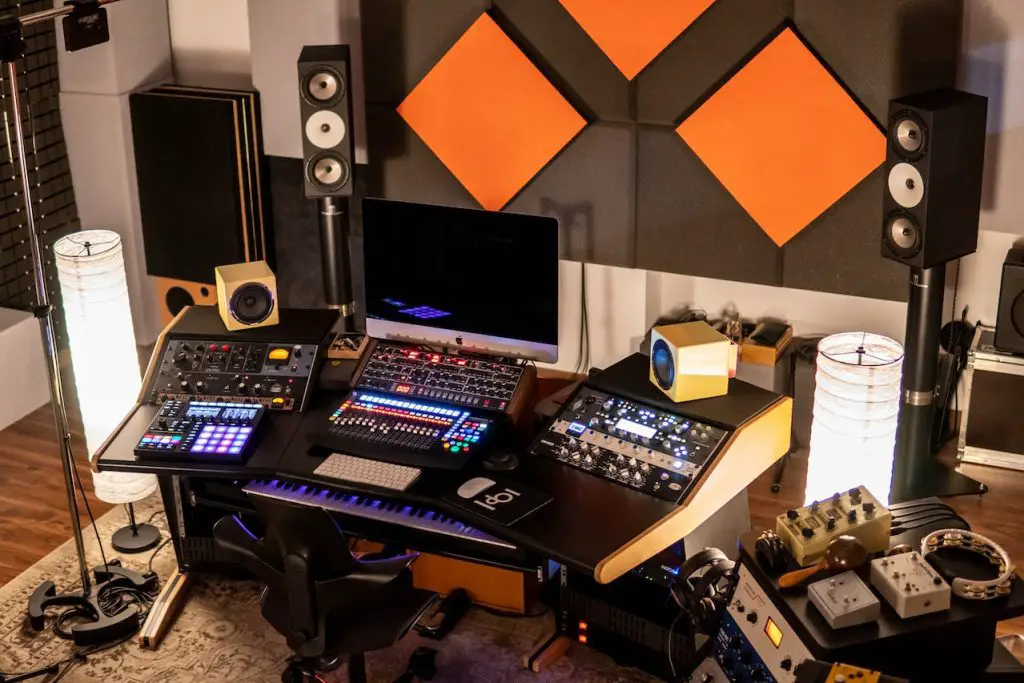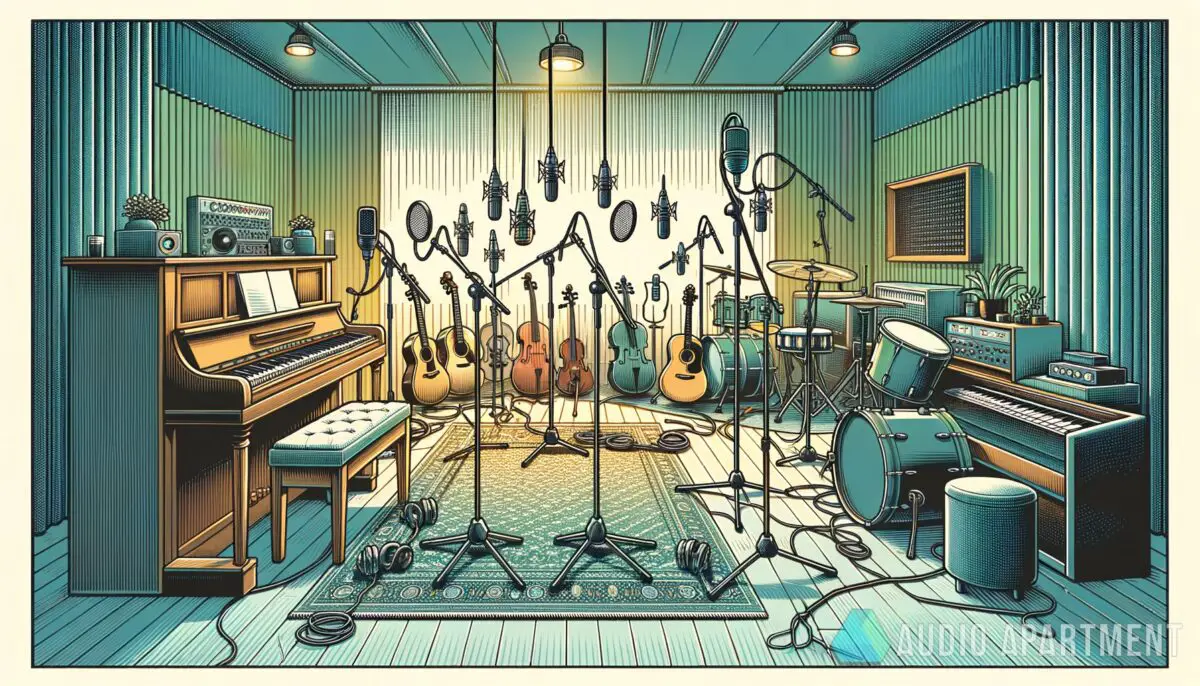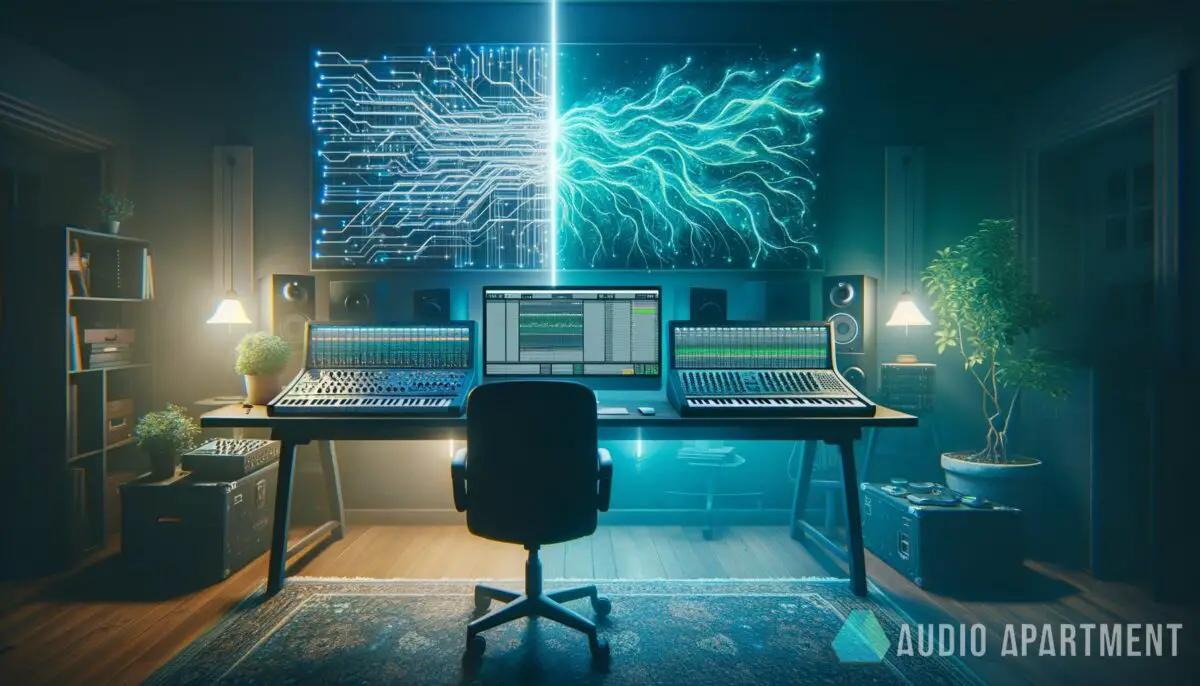I’ve seen my fair share of odd habits among sound engineers and musicians. But one thing that always seems to baffle me is the tendency for some speakers to hum or buzz when you touch the plug jack or cable. It’s like they’re alive and trying to communicate with us through the power of electricity!
But in all seriousness, there’s actually a scientific explanation for why speakers hum when you touch the plug jack or cable. In this post, we’ll delve into the world of electrical currents and impedance matching to uncover the truth behind the mysterious humming of speakers. So let’s dive in!
Why does the speaker hum when you touch the plug jack or cable? When you touch the plug jack or cable of a speaker in a home recording studio, it can cause the speaker to hum due to a change in the electrical current flowing through the circuit. This change in current can disrupt the delicate balance of the impedance matching between the amplifier and the speaker, causing the speaker to produce a humming sound.
Is it normal for speakers to hum?
In most cases, it is not normal for speakers to hum. Speaker hum is typically caused by a problem with the electrical circuit or the impedance matching between the amplifier and the speaker, and it can be fixed by identifying and addressing the underlying issue.

However, there are some situations where a small amount of hum is considered normal and may not be worth worrying about. For example, some amplifiers and speakers may produce a small amount of hum due to the design of the circuit, and this hum may not be noticeable unless the system is played at very high volumes.
Additionally, some speakers may produce a small amount of hum when they are first powered on, but this hum should quickly disappear once the speaker has warmed up.
AKAI Professional MPK Mini MK3

AKAI Professional MPK Mini MK3
Typical causes of speakers humming
A variety of different factors can cause humming speakers, but the most common culprits are interference from other electrical devices in the home studio and electrical ground loops. Here are some of the reasons why speakers hum:
1. Electromagnetic interference
Take note that the electromagnetic frequency range from 30 Hz to 300 GHz is prone to radio frequency interference (RFI), a frequent kind of EMI. Because of electromagnetic induction, electrostatic coupling, and electrical conduction, EMI will introduce noise to an audio signal. Electric current creates magnetic fields, while magnetic fields induce a current.
Because of the aforementioned power mains, humming may be produced in both the audio wire and the speaker. Similar interference, noise, and hum in the audio conductors and, by extension, the linked speakers may be caused by adjacent and distant radio wave transmission.
2. Electrical ground loops
Connecting electronic components in a manner that creates several pathways to the ground is known as a ground loop. It is preferable for a pair of points in an audio circuit to have the same ground reference potential. Different ground potentials exist between these two places in a ground loop.
Suppose a mixing board and an active speaker are both connected to the ground in the correct manner. A speaker’s input is wired to the mixing board’s output. The shield of this audio cable is connected to the ground of both the speaker and the mixer, creating a closed conductive ground loop that protects the signal from electromagnetic interference and returns it to the source.
Connecting the active speaker and mixer ground wires to the power mains and the building utility ground wire completes the closed-loop system.
Connecting the active speaker and mixer ground wires to the power mains and the building utility ground wire completes the closed-loop system. You may find either 50 Hz or 60 Hz on the AC power mains, depending on your location. Due to the resistance of the ground conductor in the cable, a tiny alternating current (AC) voltage drop will be induced across the ground in the power mains.
The produced 50- or 60-Hz interference may be audible as humming or buzzing in the speakers since audio signals are alternating current voltages between 20 Hz and 20,000 Hz.

3. Mechanical failure
The speaker’s internal hardware may be at fault if there is a buzzing or humming sound. Hushing and buzzing may be caused by faulty equipment itself or by making the audio route more vulnerable to EMI and ground difficulties.
4. Human conduction
Human conduction itself does not directly cause speaker hum, but it is possible for certain types of electrical interference to be caused by the human body.
For example, if you touch a metal component in an audio system, your body can act as a conductor and create a small amount of electrical noise that could potentially contribute to speaker hum. However, this is generally a minor factor compared to other sources of interference in the system.
How to fix speaker hum in 3 easy steps
Here are three easy steps you can follow to find and fix hum in your home recording studio:
1. Identify the source of the hum
The first step in fixing the hum is to determine where it’s coming from. This can often be done by unplugging each piece of equipment in your studio one by one and listening for the hum to disappear. If the hum disappears when you unplug a specific piece of equipment, then that is likely the source of the hum.
2. Check for ground loops
Once you’ve identified the source of the hum, the next step is to check for ground loops. As mentioned earlier, ground loops can be a common cause of hum, and they can be caused by multiple paths for the electrical ground to flow.
To check for ground loops, try using a ground loop isolator between the source of the hum and the rest of your equipment.
3. Check the impedance matching between the amplifier and the speaker
Another potential cause of hum is a mismatched impedance between the amplifier and the speaker. To fix this issue, you’ll need to carefully match the impedance of the amplifier and the speaker.
This can often be done by consulting the manufacturer’s specifications for both the amplifier and the speaker and making sure that the impedance of the two is closely matched.
If you want even more tips and insights, watch this video called “How to Fix Ground Loop Noise, Hiss, Buzz, & Hum (Simple & Cheap!)” from the FireWalk YouTube channel
Frequently asked questions (FAQ)
Do you still have questions about why speakers hum when you touch the plug jack or cable? Below are some of the most commonly asked questions.
Is speaker hum a sign of damage?
A speaker hum can be a sign of damage or malfunction, but it can also be caused by other factors such as electrical interference, ground loops, or improper wiring. If the hum is persistent and consistent across different audio sources, it could indicate a problem with the speaker’s internal components, such as a faulty transformer or a damaged voice coil. However, if the hum is intermittent or changes with different audio sources or settings, it may be caused by external factors.
Does playing loud sounds damage speakers?
Yes, playing loud sounds can affect speakers. When a speaker is subjected to very loud sounds for a prolonged period, it can cause damage to the speaker’s components, such as the diaphragm, voice coil, and magnet. This damage can lead to reduced sound quality, distortion, and even complete failure of the speaker. Additionally, playing sounds that are too loud for the speaker to handle can cause the speaker to overheat, which can also damage its components. It’s essential to use speakers within their recommended power handling capacity and not to play sounds at excessively loud volumes for extended periods to prevent damaging the speaker.
How an audio cable can cause humming in a speaker?
When an audio cable is connected to a speaker in a home recording studio, it can cause the speaker to hum due to a change in the electrical current flowing through the circuit. This change in current can disrupt the delicate balance of the impedance matching between the amplifier and the speaker, causing the speaker to produce a humming sound.
Conclusion
In conclusion, the humming of speakers when you touch the plug jack or cable is caused by a change in the electrical current flowing through the circuit. This change can disrupt the impedance matching between the amplifier and the speaker, causing the speaker to produce a humming sound.
While it might seem like a mysterious and annoying phenomenon, the truth is that it’s just a simple case of physics at work. So the next time your speakers start humming, just remember to keep a steady hand and avoid touching the cables, and you’ll be able to enjoy your music in peace.
So, does your speaker hum whenever you touch the plug jack or cable? And did I cover everything you wanted to know? Let me know in the comments section below (I read and reply to every comment). If you found this article helpful, share it with a friend, and check out my full blog for more tips and tricks on music production. Thanks for reading, and never stop making music.
Key takeaways
This article covered why speakers hum when you touch the plug jack or cable. Here are some key takeaways:
- In most cases, it is not normal for speakers to hum.
- A variety of different factors can cause humming speakers, but the most common culprits are interference from other electrical devices in the home studio and electrical ground loops.
- There are three easy steps you can follow to find and fix hum in your home recording studio.















